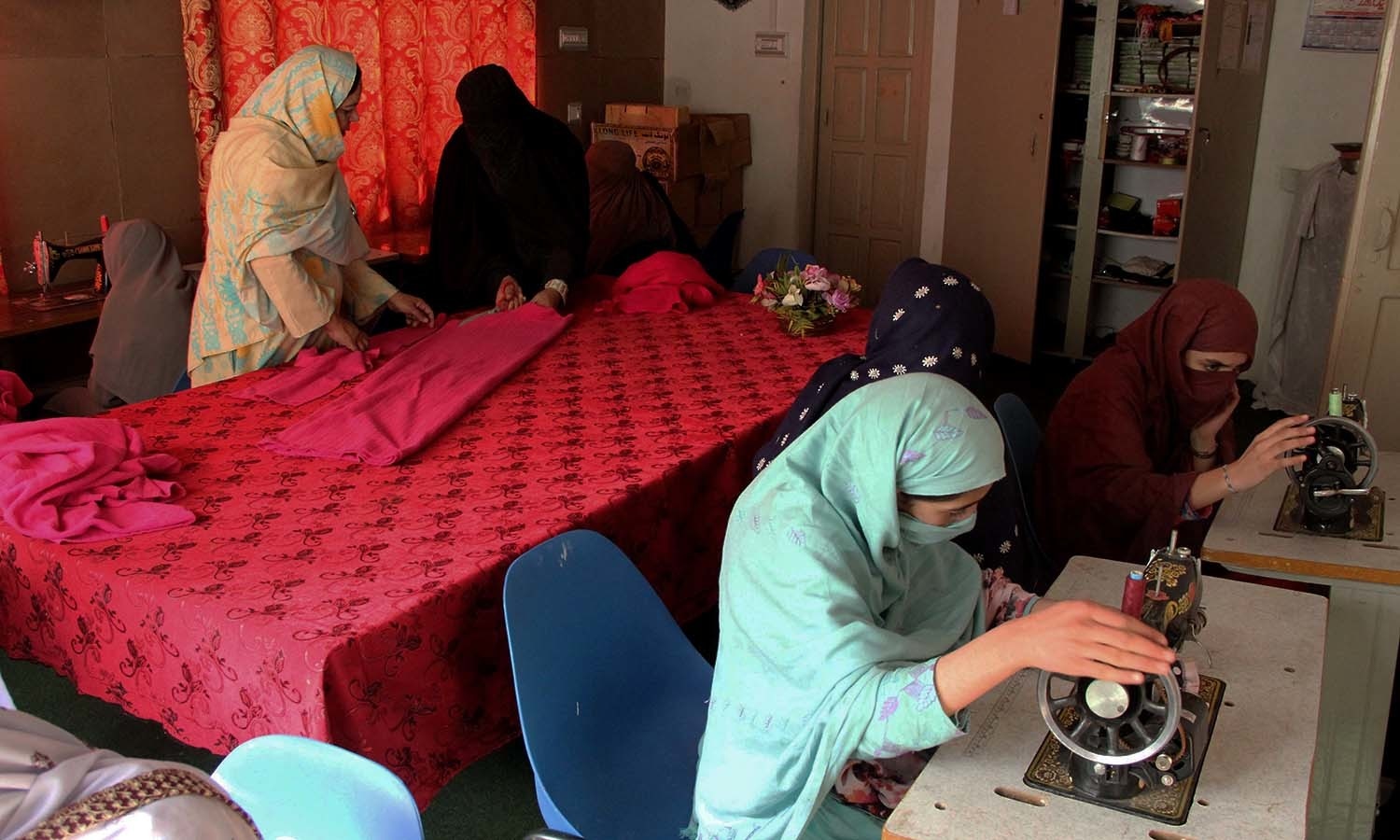Meet the daredevil activists changing the game for women in Swat
Tabassum Adnan was becoming concerned with how little women in Swat knew about their basic rights. It disturbed her that Swati women were not in control of their own security, and had little knowledge of their right to vote. Victims of violence rarely knew where they could go for help or what options they had, legally or otherwise.
Spurred by the void, she established Khwendo Jirga (Sister’s Council), a sensitisation space where women come together to discuss problems ranging from chilling acid attacks to collectively improving their security.
“I received a positive response [from the community] and formed the Jirga,” Tabassum says, “Women from different areas gather, discuss their issues and resolve them.”
Drawn to this unique space, women began to meet regularly in the Sister’s Council to talk about honour killings, acid attacks, and other violations in the community.

The council has dealt with some heinous cases. There was a woman whose nose was chopped off by her husband, another whose leg was axed by her husband, and a third whose husband threw acid on her face. The sisters collectively provided emotional support and strategised how to find a safe space for these women.
Also read: Women's Protection Bill — A case of men's insecurities
Much more than a space for dialogue, the council is a tightly-knit network of women across the valley that monitors rights violation inside homes. When members are alerted of a crime or wrongdoing, they rally other members to reach the spot and immediately take it up with the relevant government department or authority.
“We have stopped several cases of swara, a tradition in which a girl is forcefully married to a man of a rival family to resolve disputes,” Tabassum says. There are several other examples. Tabassum has liaised with police to stop six cases of swara and violence, resulting in police action to save those women.
Home to the spirited Nobel Prize Laureate Malala Yousafzai, the Swat valley has no dearth of brave women. Over one million of them—with their children— have witnessed a full-fledged military operation.
Explore: Meet the heroic mothers who raise children with special needs
But women like Tabassum have stepped up in turbulent environments to start campaigns aimed at promoting women's education.
Neelam Chattan, Shama Khalil, Gul-e-Khandana are some of the other women active in the valley.

Read next: doctHERs: Remote patient care with female doctors at the fore
No to toy guns
Through her unique movement, Neelam Chattan campaigns against the sale and use of toy weapons in Swat.
The three years of militancy in the valley have left a deep impact on the minds of children. She feels children are dangerously inspired by their weaponised environment and thus began re-enacting violent scene with their own toy weapons.
To divert these young minds from the trauma of the conflict and to dissuade children from using weapons, social worker and peace activist launched her anti-toy gun movement.
“Toy weapons create a criminal mindset in children,” Neelam says. “Research has proven that toy weapons play a key role in promoting violence in society.”

She believes that unless the government bans toy guns to promote a peaceful and developed society, children will be drawn towards terrorism, street crime and violence.
The 22-year-old has founded ‘Peace For New Generation’, which brings young women and men to spread awareness amongst children.
Together, they plan healthy, non-violent activities for younger kids, such as sports activities, skits and theatre performances that divert children's attention from playing with guns.
Explore: Meet Aneela Naz, the KP police officer battling criminals and stereotypes
A home for widows and orphans
In 2009, Shama Khalil, a young entrepreneur in lower Swat, decided to do something about women who had nowhere to go. Many were widowed in the conflict while some were abandoned by their families.
Concerned with the absence of financial and personal security of these women, Shama decided to open a rehabilitation center where they could live comfortably without having to rely on a male guardian.

Her initiative Shama Vocational Center (SVC) houses not just widows, but also orphaned girls.
Since the vocational center opened, Shama has trained over 2,000 women in sewing and embroidery work. These women make clothes, bags and accessories which are sold locally in Swat and in other parts of the country. With more women joining the center, the craft of Swati embroidery— which took a hit during the insurgency— is once again flourishing.
Shama's center is not the only one. Her model has been adopted by others, such as Gul-e-Khandana in upper Swat, who opened the Women Welfare Development Organization (WWDO).

“I could not stand to see their suffering,” Shama says, “I wanted to provide a space where these women could share their burdens but I also wanted to provide a space where they could learn skills and earn their livelihood in a respectful way.”




